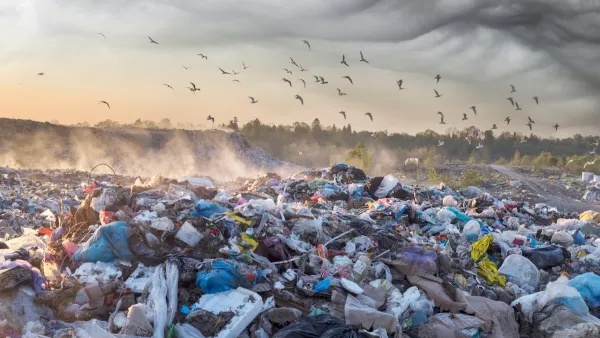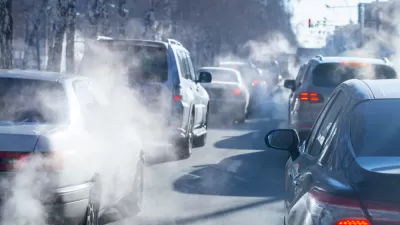At the beginning of a two-day trip to India, the world's third largest emitter of carbon dioxide, U.S. Secretary of State John Kerry made solving climate change a focus of his public remarks. The U.S.'s own failures elicited skepticism from locals.
"U.S. Secretary of State John Kerry arrived in India over the weekend and gave a speech urging the fast-developing country to work closely with the U.S. and other countries on solutions to climate change," writes John Upton. "The Americans’ arrival in Delhi coincided with deadly floods in northern India that some Indian officials have linked to global warming."
"But though climate change poses urgent dangers in India, Kerry’s speech was not received warmly by all of the nation’s environmentalists. Some felt they were being lectured to by the secretary of state, a representative of a nation that is second only to China in total greenhouse gas emissions."
"Chandra Bhushan, a senior official at the Delhi-based Centre for Science and Environment, was unimpressed by Kerry’s speech, as he explained in an opinion piece in Down to Earth, a leading Indian environmental magazine published by his nonprofit:
I have no problems with [Kerry's] pitch for countries coming together to develop renewable energy. But I have issues with the fact that nowhere in his speech did he mention what the US is doing on renewable energy or what is the renewable energy target that the US has set for itself for, say 2020. The fact is that today close to 20 per cent of India’s electricity supply is from renewable sources (including hydropower). India has set itself a target for renewable energy; the US has not.
FULL STORY: Kerry implores India to tackle climate change, ticks off Indian enviros

Maui's Vacation Rental Debate Turns Ugly
Verbal attacks, misinformation campaigns and fistfights plague a high-stakes debate to convert thousands of vacation rentals into long-term housing.

Planetizen Federal Action Tracker
A weekly monitor of how Trump’s orders and actions are impacting planners and planning in America.

In Urban Planning, AI Prompting Could be the New Design Thinking
Creativity has long been key to great urban design. What if we see AI as our new creative partner?

King County Supportive Housing Program Offers Hope for Unhoused Residents
The county is taking a ‘Housing First’ approach that prioritizes getting people into housing, then offering wraparound supportive services.

Researchers Use AI to Get Clearer Picture of US Housing
Analysts are using artificial intelligence to supercharge their research by allowing them to comb through data faster. Though these AI tools can be error prone, they save time and housing researchers are optimistic about the future.

Making Shared Micromobility More Inclusive
Cities and shared mobility system operators can do more to include people with disabilities in planning and operations, per a new report.
Urban Design for Planners 1: Software Tools
This six-course series explores essential urban design concepts using open source software and equips planners with the tools they need to participate fully in the urban design process.
Planning for Universal Design
Learn the tools for implementing Universal Design in planning regulations.
planning NEXT
Appalachian Highlands Housing Partners
Mpact (founded as Rail~Volution)
City of Camden Redevelopment Agency
City of Astoria
City of Portland
City of Laramie





























